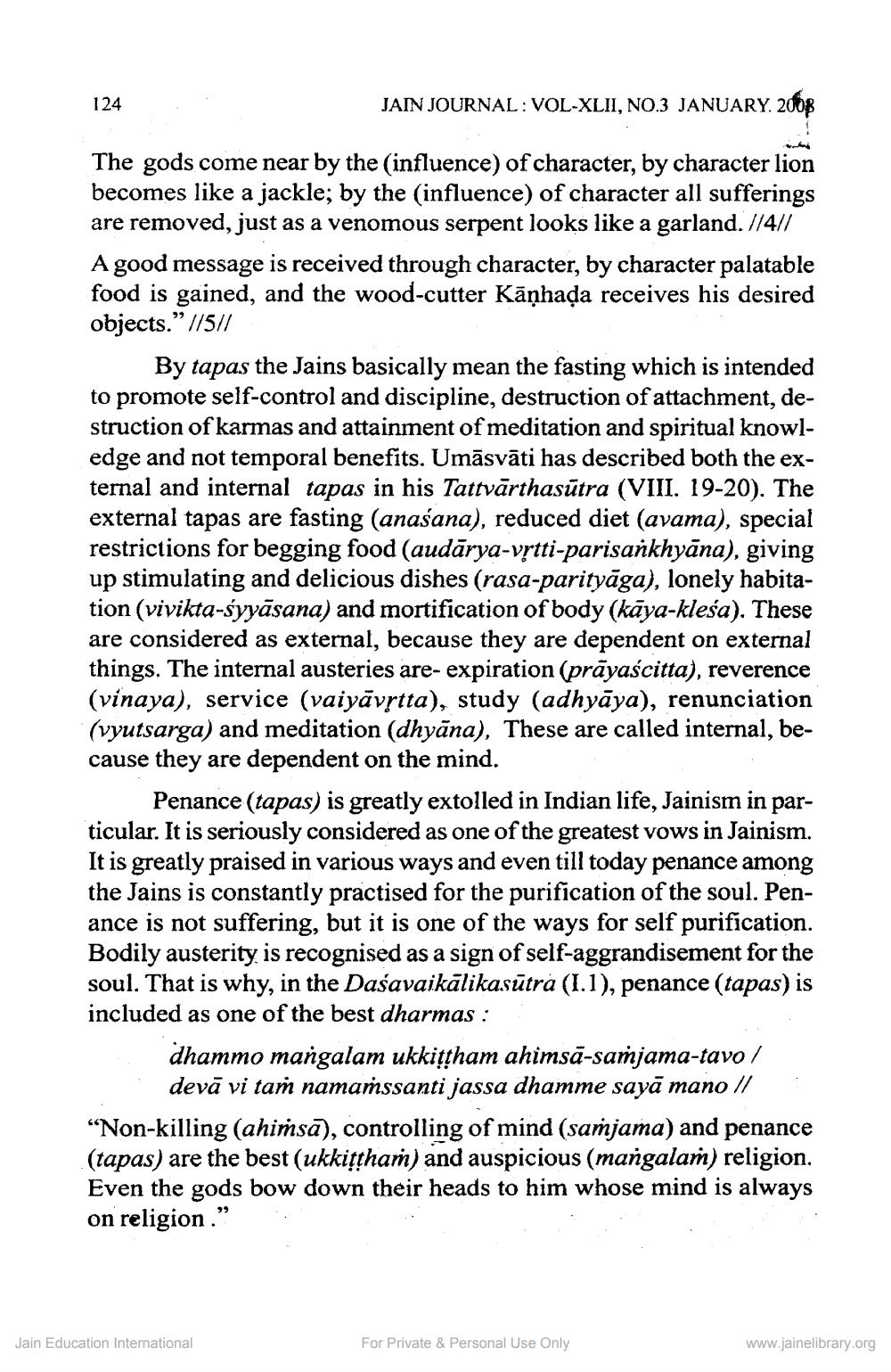________________
124
JAIN JOURNAL: VOL-XLII, NO.3 JANUA
The gods come near by the influence) of character, by character lion becomes like a jackle; by the influence) of character all sufferings are removed, just as a venomous serpent looks like a garland. //4// A good message is received through character, by character palatable food is gained, and the wood-cutter Kāņhada receives his desired objects.”//5/1
By tapas the Jains basically mean the fasting which is intended to promote self-control and discipline, destruction of attachment, destruction of karmas and attainment of meditation and spiritual knowledge and not temporal benefits. Umāsvāti has described both the external and internal tapas in his Tattvārthasūtra (VIII. 19-20). The external tapas are fasting (anaśana), reduced diet (avama), special restrictions for begging food (audārya-vrtti-parisankhyāna), giving up stimulating and delicious dishes (rasa-parityāga), lonely habitation (vivikta-syyāsana) and mortification of body (kāya-klesa). These are considered as external, because they are dependent on external things. The internal austeries are-expiration (prāyaścitta), reverence (vinaya), service (vaiyāvstta), study (adhyāya), renunciation (vyutsarga) and meditation (dhyāna), These are called internal, because they are dependent on the mind.
Penance (tapas) is greatly extolled in Indian life, Jainism in particular. It is seriously considered as one of the greatest vows in Jainism. It is greatly praised in various ways and even till today penance among the Jains is constantly practised for the purification of the soul. Penance is not suffering, but it is one of the ways for self purification. Bodily austerity is recognised as a sign of self-aggrandisement for the soul. That is why, in the Dasavaikālikasūtra (I.1), penance (tapas) is included as one of the best dharmas :
dhammo mangalam ukkitham ahimsa-samjama-tavo /
devā vi tań namaṁssanti jassa dhamme sayā mano // “Non-killing (ahissa), controlling of mind (samjama) and penance (tapas) are the best (ukkiţtham) and auspicious (mangalam) religion. Even the gods bow down their heads to him whose mind is always on religion."
Jain Education International
For Private & Personal Use Only
www.jainelibrary.org




